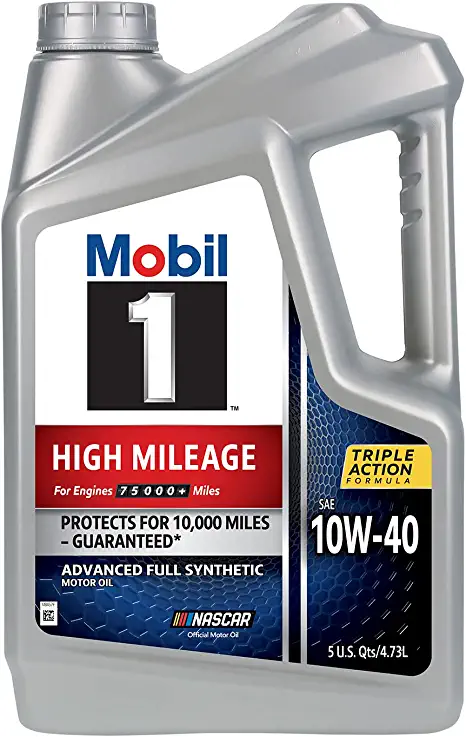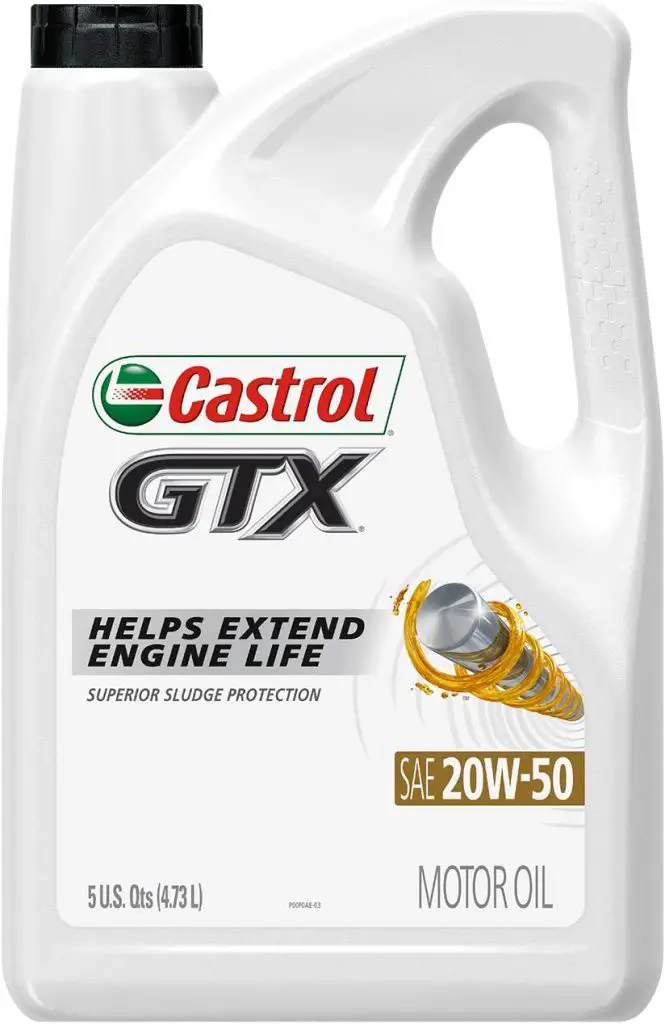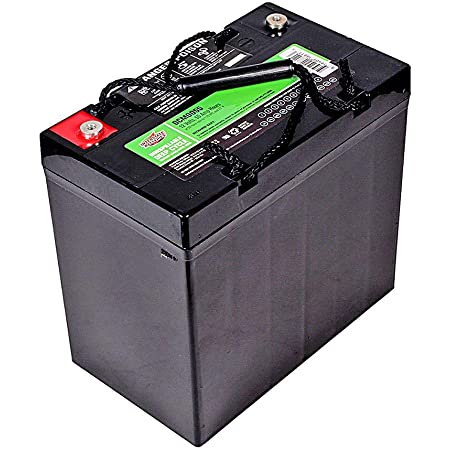10w40 vs 20w50: Which Is Better?
Car engines don’t work on oil of one type only because they need a change over time based on the age of the engine.
The manufacturers mix different oils to make sure the engine has the best lubricating oil. Different oil formulas work for different cars. There are different types of oils in the market.
We will look at 10w40 and 20w50 oil, the two most popular oil types, so you can understand the best type of oil to use.
Both 10W40 and 20W50 are ideal for winter and summer temperatures, but they are not the same.
20W50 has a viscosity index of 130 compared to 10W40 which has a 150 index. The higher the viscosity index, the better the engine oil output.

What Is 10w40 Engine Oil?
10W40 is one of the most popular engine oils for modern-day engines. Modern engines need more lubrication and cold temperature pumping, and all vehicles from 2012 have them.
10W40 oil is considered a good choice for fast vehicles and cars in cold climates. The 10w40 oil should be used for engines that have passed 100000 km or 60000 miles.
The name indicates the viscosity of 10W40 with numbers on it.
The number 10 shows the oil’s viscosity rating at low temperatures, -25 degrees Celsius or -13 degrees Fahrenheit, while 40 shows the oil’s viscosity rating at operating or high temperatures, +40 degrees Celsius or + 104 degrees Fahrenheit.
If you own a high-performance engine and a modern vehicle that requires extreme lubrication and protection, 10W40 is a perfect choice.
What Is 20W50 Engine Oil?
Another engine oil is 20W50. You should only use the oil recommended by the manual. The 20W50 is the best choice for cars with high temperatures.
It’s ideal for summer cars as well as vehicles operating in a mild winter season. It has a Viscosity of between 16 and 21.8mm2/s.
The engine will start to heat up if you drive for a long time.
If the engine components don’t get enough lubrication, the heat causes serious tears and wears. 20w50 is a good option to deal with stress.
If you are staying in a cold region where your car stays in the garage for more than a week, you will need a cold start.
It’s ideal for both winter and summer vehicles because of the 20W50 oil’s viscosity. At low and high temperatures, the numbers on its name specify its viscosities.
There is a minimum of -20 degrees Celsius or -4 degrees Fahrenheit for the numbers 20 and w to represent the oil’s viscosity during the winter.
The number 50 shows the oil’s Viscosity at high temperatures, which can be as high as +45 degrees Celsius or 113 degrees Fahrenheit.
If you own a pick-up truck or a highway fleet, your car will usually run more than passenger cars.
The 20W50 oil is the best budget option for heavy and old vehicle engines to provide them with long life and proper lubrication.
Differences
Viscosity
10W40 oil has a 40th grade, while 20W50 oil has a 50th grade.10W40 is best for winter vehicles at low temperatures because 10W40 is more viscous than 20W50.
In hotter climates, 20W50 is the best option. Keep in mind to stick to the prescribed grade by the manufacturer.
Density
10W40 has a lower density than the denser 20W50. By using either 10W40 or 20W50, there will be no increased mileage.
Additives
Both 10W40 and 20W50 are produced from high-quality base oil blended with additives. Both oils have good oxidation and thermal stability.
Operating temperature
20W50 has a temperature of -20 C or -4 F, while 10W40 has a temperature of -25 C or -14 F. The high temperature for 10W40 is 40, while that of 20W50 is 50.
10W40 oil can be used for cold climates and hotter climates.
Price
The price of 10W40 oil is more expensive than the price of 20W50.
If your car is a highway fleet that needs regular oil replacement, 20W50 is cheaper than 10W40 and is ideal for light vans or passenger cars without changing the oil frequently.
Is It Possible to Use 10w40 Instead of 20w50?
The type of oil you use depends on several factors, including the season, the type of vehicle, and how fast you drive.
If you use 10W40 oil in a vehicle that needs 20W50 for an extended period it can damage the engine.
Depending on the type of car you drive, 20W50 or 10W40 may be recommended as part of regular service schedules.
If your mechanic has more experience with cars and engine issues, you should always follow the instructions in your owner’s manual to see what oil suits your engine.
Is 10w40 and 20w50 the Same?
The types of engine oil are very different. 10w40 can be used more often than 20w50. 20w50 can be used under certain circumstances.
What Happens When You Put the Wrong Oil in the Engine?
If you use the wrong oil in your engine, it can cause significant damage. The car won’t lubricate as it should, and it will start losing strength.
Different oils have different flow characteristics and different viscosities. The wrong oil can cause noise and leaks in engines.
If you put the wrong engine oil in the car, it will not start in the cold weather.
If you do a good and regular oil change with either 10W40 or 20W50, you should not experience any problems with sludging.

Conclusion
Each oil has different qualities. It’s important to use the right type of oil for your vehicle’s engine to make it run better and avoid engine failures.
Refer to your vehicle manufacturer’s manual for the best oil types for your car.
If 10W40 and 20W50 are compatible with your car, you need to consider the differences between the two oils.

Truck driver by profession, automotive lover by heart. Ricky is the main publisher and editor at Truckile.com sharing his life-long knowledge and experience in the auto industry and truck driving!






